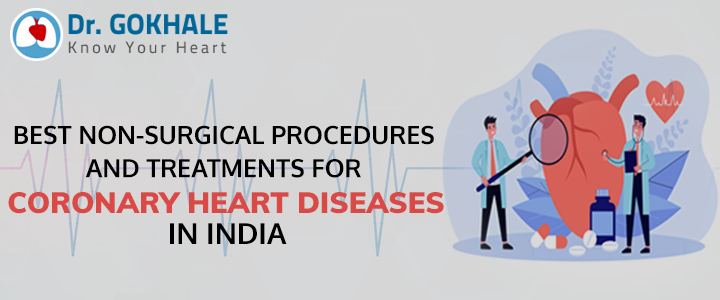Coronary Heart Diseases – A leading Cause of Death
Coronary heart diseases occur when coronary arteries that carry blood and oxygen to the heart become too narrow, causing the blood flow problems which can result in a variety of heart problems from shortness of breath to chest pain, and even heart attack in case of severe blockage.
The blockage generally tends to happen due to the build-up of cholesterol that creates plaques which obstruct the blood flow. In a few cases, damage to the inner artery can also trigger the collection of cellular waste products which can also create the plaques which narrow the passage of blood flow. When the plaque ruptures, the platelets which clump at the injury site can also block the passage. Given there are many ways the blood artery can narrow, the coronary artery diseases pose a greater threat to the life of individuals diagnosed with the condition. A leading cause of death in the world, coronary heart diseases are responsible for more than 8 million deaths around the world.
Coronary Heart Diseases- Non-surgical Treatment Options
After a patient is diagnosed with Coronary artery disease, the treatment options depend upon the severity of the condition which is gauged based on the persistence of symptoms. The treatment options involve mediations, lifestyle changes focusing on diet and exercise and the last resort surgery procedures to un-block and improve the blood flow.
The first step whether to treat the diagnosed heart disease or to reduce its potential risk is a complete lifestyle change focussed on diet and exercise. The patients are advised to make heart-friendly lifestyle changes by including wholesome nutrition that includes fruits, vegetables, whole grains and limit sugars and unhealthy fats. This heart-healthy diet must be supported by an active lifestyle with at least 20 minutes of aerobic activity to strengthen the heart muscle, avoiding smoking and alcohol beverages.
The lifestyle change is duly supported by medications that are recommended based on the specific heart diseases to manage the risk factors and treat the underlying causes. From ACE inhibitors, calcium channel blockers, metformin, nitrates, statin therapies there are a wide variety of medications that help manage and reduce the risk of the heart disease.
Surgical vs Non-surgical Treatment Options for Heart Diseases:
As said before not every heart disease case requires surgery, and in fact, there has been an extensive 5-yearlong study performed on thousands of patients to compare the effectiveness of surgical a non-surgical medical approaches to treat the patients. After carefully examining the usage of both methods, the study concludes that there is no need for invasive surgical procedures in patients without the symptoms.
However it must be noted that not every symptom is as pronounced as one might think, some of them can mimic regular medical conditions and which is why you must always consult a certified heart specialist at the earliest, to get a complete & accurate picture of your heart health. Only an experienced cardiologist surgeon in Hyderabad can recommend the right treatment procedure – surgical or non-surgical, after careful examination.
If you are looking for a heart specialist in Hyderabad, Padma Shri awardee Dr Alla Gopala Krishna Gokhale is one of the best cardiologist in Hyderabad with a remarkable track record in treating all types of heart diseases. You can contact him here: 9603040506
 Ask Doctor
Ask Doctor
